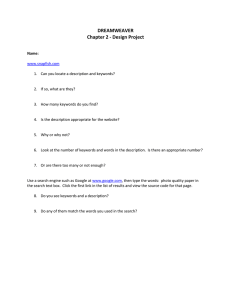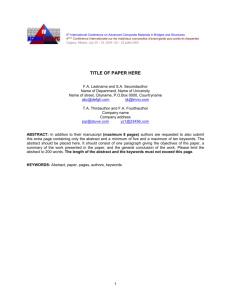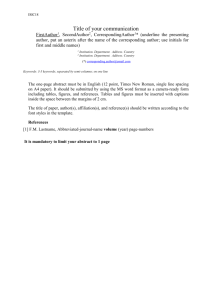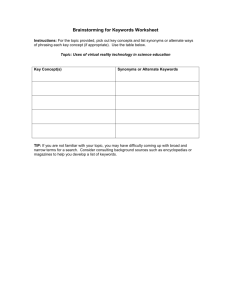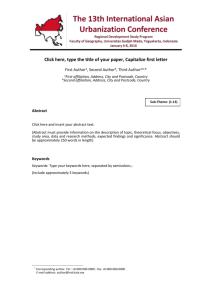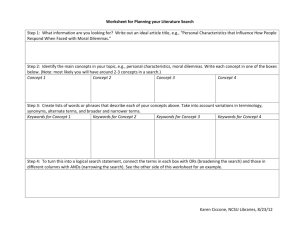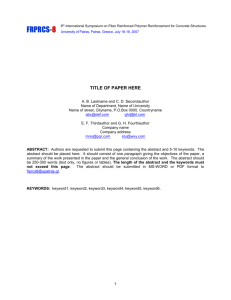Guide to Finding Information L I S
advertisement
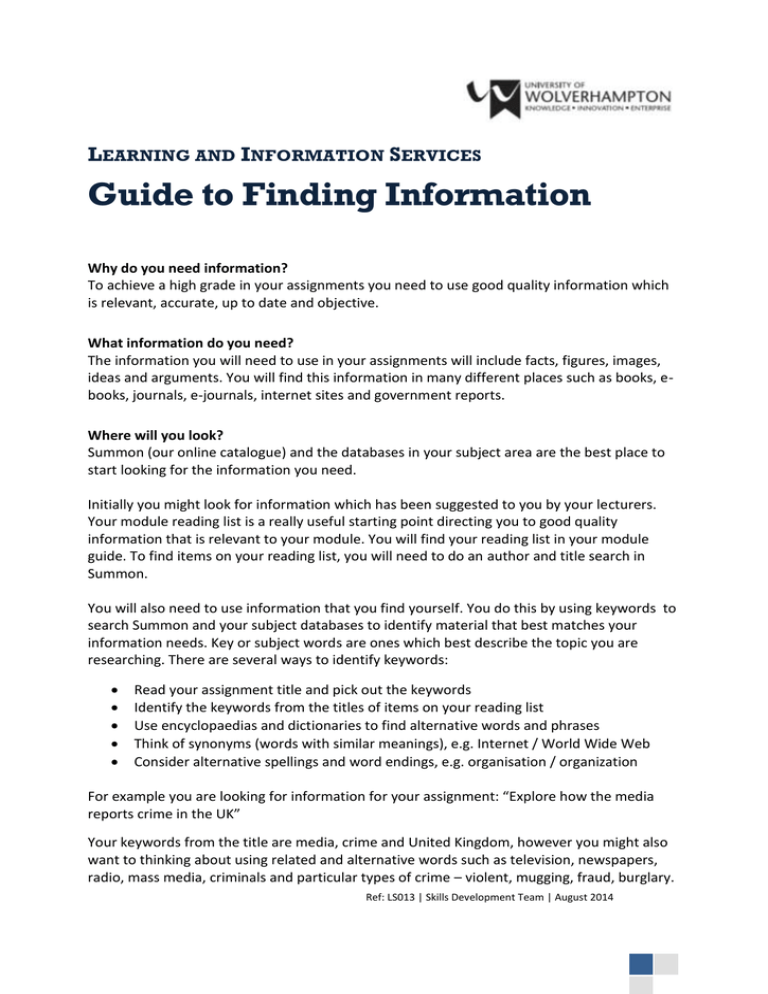
LEARNING AND INFORMATION SERVICES Guide to Finding Information Why do you need information? To achieve a high grade in your assignments you need to use good quality information which is relevant, accurate, up to date and objective. What information do you need? The information you will need to use in your assignments will include facts, figures, images, ideas and arguments. You will find this information in many different places such as books, ebooks, journals, e-journals, internet sites and government reports. Where will you look? Summon (our online catalogue) and the databases in your subject area are the best place to start looking for the information you need. Initially you might look for information which has been suggested to you by your lecturers. Your module reading list is a really useful starting point directing you to good quality information that is relevant to your module. You will find your reading list in your module guide. To find items on your reading list, you will need to do an author and title search in Summon. You will also need to use information that you find yourself. You do this by using keywords to search Summon and your subject databases to identify material that best matches your information needs. Key or subject words are ones which best describe the topic you are researching. There are several ways to identify keywords: Read your assignment title and pick out the keywords Identify the keywords from the titles of items on your reading list Use encyclopaedias and dictionaries to find alternative words and phrases Think of synonyms (words with similar meanings), e.g. Internet / World Wide Web Consider alternative spellings and word endings, e.g. organisation / organization For example you are looking for information for your assignment: “Explore how the media reports crime in the UK” Your keywords from the title are media, crime and United Kingdom, however you might also want to thinking about using related and alternative words such as television, newspapers, radio, mass media, criminals and particular types of crime – violent, mugging, fraud, burglary. Ref: LS013 | Skills Development Team | August 2014 Tips for searching 1. Deciding upon your keywords before you search will ensure your search finds relevant information quickly. Also, databases work best with keywords so entering the whole of your assignment question may mean your search misses useful items. 2. If you find too few items, use more general keywords or just look for one keyword 3. If you find too many items, try using more or more specific keywords 4. Be methodical about recording your searching. Keeping a note of which keywords you have used will help avoid duplication. 5. When doing an author search just use the surname don’t worry about the initials. 6. If you can’t think of any keywords try look at what words are used in the titles of books and journal articles on your reading list. 7. Before you search think about any limits you might to place on the information. For example does the date of the information matter or do you only want information from journals? 8. Summon and our subject databases work in similar ways but it is useful to spend some time looking at the various search options on each resource. Obtaining full- text articles If your searches reveal material not available at the Learning Centres either electronically or in print, it may be possible to obtain the item via inter-library loan. Complete the form at the Customer Service Counter. There is a small charge for this service. References You need to keep an accurate record of all the sources you would like to use in your work. Using bibliography management software such as RefWorks is an easy way to do this. Our Guide to RefWorks takes you through the process of setting up a RefWorks account. Referencing guides are available in the Learning Centres or online at http://www.wlv.ac.uk/skills (select Referencing) Help and Advice For help and advice on any aspect of finding information, including details of Finding information workshops, please see the Skills for Learning website at http://www.wlv.ac.uk/skills. Watch our online tutorial on Finding journal articles, at: http://bit.ly/1oCmArb Further reading Books offering advice on effective searching are available in the Study Skills collections in the Learning Centres and as part of our e-book collection. Cite this work: Learning and Information Services (2013) Guide to finding Information [online]. Wolverhampton: University of Wolverhampton. [Accessed give date accessed]. Available at: <http://www.wlv.ac.uk/skills>. Ref: LS013 | Skills Development Team | August 2014 To request this document in an alternative format please contact skills@wlv.ac.uk Ref: LS013 | Skills Development Team | August 2014
